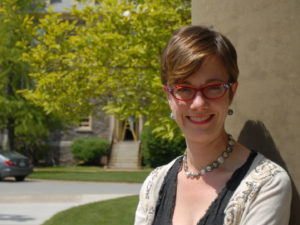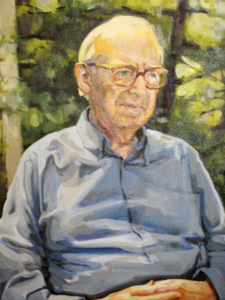Dr. Roberta Barker will deliver the 2020 Robert Crouse Memorial Lecture, entitled “The Passions of Helen Waddell: Meditations on a Forgotten Medievalist,” on Sunday, January 12 at 7 p.m. in the King’s Chapel. A reception will follow.
Helen Waddell (1889-1965), like her slightly younger contemporary Dorothy L. Sayers, was a brilliant medievalist and one of the first women to become well-known in the field. Her best-known book, The Wandering Scholars, was taught in the Foundation Year Program at one time. Unlike Sayers, Waddell’s work has been largely forgotten. Dr. Barker will help us begin to address this injustice.
About Dr. Roberta Barker
 Dr Roberta Barker is Associate Dean (Academic) of the Faculty of Arts and Social Sciences at Dalhousie University, Associate Professor (Theatre Studies) in the Fountain School of Performing Arts, with cross appointments to the Departments of Gender and Women’s Studies and Canadian Studies.
Dr Roberta Barker is Associate Dean (Academic) of the Faculty of Arts and Social Sciences at Dalhousie University, Associate Professor (Theatre Studies) in the Fountain School of Performing Arts, with cross appointments to the Departments of Gender and Women’s Studies and Canadian Studies.
She is also a graduate of King’s and a FYP lecturer. As her busy schedule allows, she also sings with the Friday afternoon Shape Note Choir that sings at Evening Prayer after the weekly student meditations. She was a student and long-time friend of Fr Crouse.
About the Lecture

Portrait of the Rev’d Dr. Crouse.
The Robert Crouse Memorial Lecture was founded in 2016 in honour of the Rev’d Dr. Robert Darwin Crouse, BA’51, DD’07, of blessed memory, scholar, priest, and organist, whose dies natalis is 15 January, 2011.
Through his renowned sermons, great learning, and gentle humility, Fr. Crouse educated and inspired a whole generation of priests, bishops, and academics, who are now serving in dioceses and universities throughout Canada, the United States, and Europe. An organist and harpsichordist, in the early 1970s Dr. Crouse established the current choir at King’s whose execution of both polyphony and plainchant continues to enhance and shape the poetic liturgy of the King’s Chapel. His writings and his love for the medieval Italian poet, Dante, continue to powerfully shape the personal and intellectual formation of students at the University of King’s College and its Chapel.
